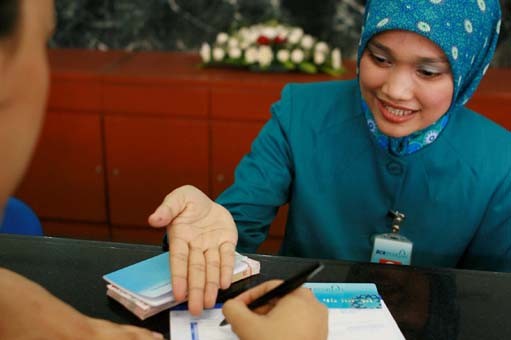Popular Reads
Top Results
Can't find what you're looking for?
View all search resultsPopular Reads
Top Results
Can't find what you're looking for?
View all search resultsDisbursal programs deter Islamic finance growth: IDB
Change text size
Gift Premium Articles
to Anyone
I
slamic financial institutions work separately in Indonesia, making their growth relatively stagnant compared to similar institutions in other countries despite the potential posed by serving the world's largest Muslim population.
The growth of sharia finance in Indonesia is stagnant at 4.8 to 4.9 percent yearly. It has never reached above 5 percent. Thus, Islamic-based financial institutions in Indonesia are relatively small and seen as being second rate compared to conventional financial institutions.
"It affects [fund] collection and distribution despite it being a potentially big market. It makes the cost of funds at sharia banks higher than that at conventional banks," Islamic Development Bank (IDB) Indonesia country director Ibrahim Shoukry told thejakartapost.com in Jakarta on Saturday.
Usually, an sharia institution functions only as an extension of a conventional bank, he said, and therefore the infrastructure and human resource were usually not as strong as those in its parent company.
Ibrahim voiced support for the government’s initiative to merge state-owned Islamic banks to expand their collection and distribution. “A bigger bank could attract bigger investors and play a bigger role in financing, such as in issuing bigger sukuk," Ibrahim continued.
The same principle could be applied to zakat (mandatory alms) and sadaqah (charity) distribution institutions. There are many professionals that disburse funds, such as Dompet Dhuafa, LAZIZMU (under Muhammadiyah) and the PKPU (under Nahdlatul Ulama) and semi-professionals.
"People are comfortable making donations through people they can trust. If they join the effort, they can utilize zakat and sadaqah more to enhance the economy," Ibrahim said. (ags)










